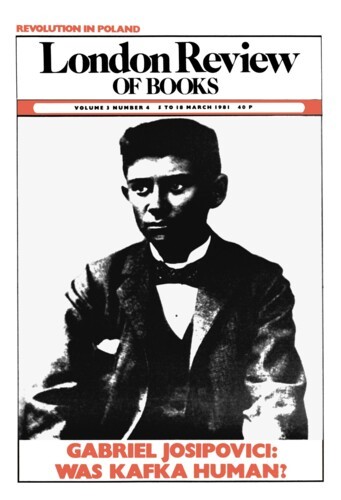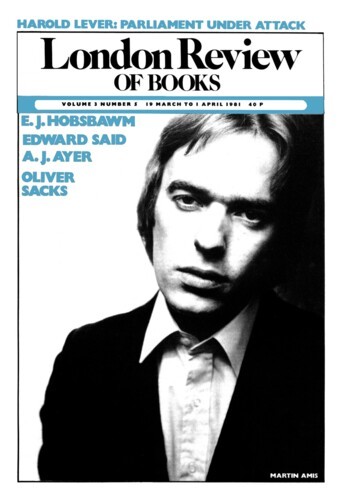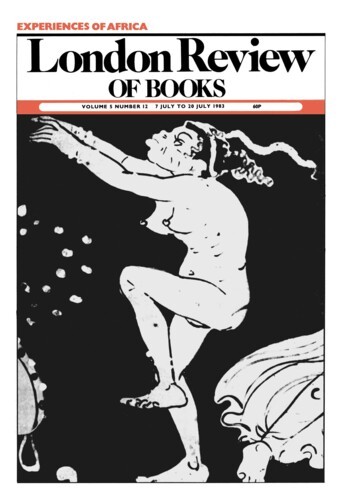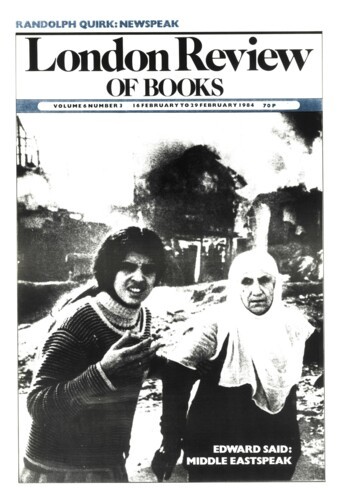Grey Eminence
Edward Said, 5 March 1981
Walter Lippmann (1889-1974) was probably the most powerful and famous American journalist of this century, a fact confirmed many times over in Ronald Steel’s extraordinarily fine biography. The only son of very well-off German-Jewish parents, Lippmann had a sheltered and privileged childhood in New York, ‘learning Latin and Greek by gaslight and riding a goat cart in Central Park’ before going off to Harvard, where his classmates included John Reed, T.S. Eliot and Conrad Aiken. From birth to death, Fortune – in the form of knowing nearly everyone who counted and being able to defend at least two sides of every major public issue of his time – always favoured him. The list of his friends, his associates, the things he did (‘worked as a legman for Lincoln Steffens … debated socialism with Bernard Shaw and H.G. Wells … became the éminence grise to Woodrow Wilson’s own alter ego, Colonel House’), the presidents, kings and leaders he knew, the great events he witnessed at very close quarters, the papers, books and journals he produced, the careers he espoused or helped, the ideas, issues, problems he encountered and illuminated, is positively awesome, and, as Steel says justly, ‘gave him an enormous power over public opinion’. Yet Lippmann never held office; although substantial, his wealth did not command direct control over industry or finance capital; he had many influential friends, but never a school or movement behind him. The only thing he did (‘only’ being a most inadequate word here) was, as he put it, to assist his American readers in making an ‘adjustment to reality’.




